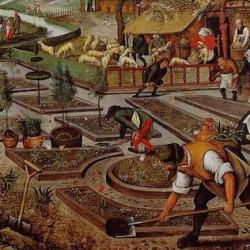A few quotations from the opening pages of Karl Bucher’s Industrial evolution; .
Economic theory begins from the assumption that human beings have an “economic nature,” and that “From this economic nature a principle is supposed to spring, which controls all his actions that are directed to the satisfaction of his wants. This is the economic principle . . . . Man estimates the extent of the discomfort that would arise from the non-satisfaction of a want felt by him; he measures the discomfort that the labour necessary to meet the want can cause him; he compares the discomforts with each other; and resolves to undertake the labour only when the accompanying sacrifice is less than the sacrifice of remaining unsatisfied . . . . upon undertaking the labour he again chooses the least burdensome among the various possible methods of procedure, and thus has a further series of considerations, estimations, comparisons, and judgments to enter upon” (1-2).
“Even among civilized mankind, from whose manifold activity the principle of economy has been deduced, indications are not wanting to show that the economic nature must be characteristic of different individuals in different degrees. Between the industrious and the indolent, the provident and the improvident, the sparing and the spend-thrift, there are innumerable gradations . . . .” (2).
“We shall scarcely be able to postpone the question, whether indeed that ‘economic nature’ does not, for mankind in general, signify something acquired rather than something given by nature; and whether we must not assume at the beginning of human evolution a period of purely instinctive satisfaction of wants reaching over many thousands of years, such as we are accustomed to take for granted in the case of the lower animal” (3).














